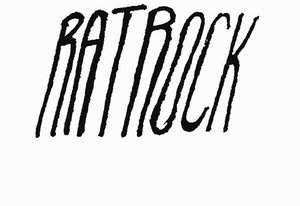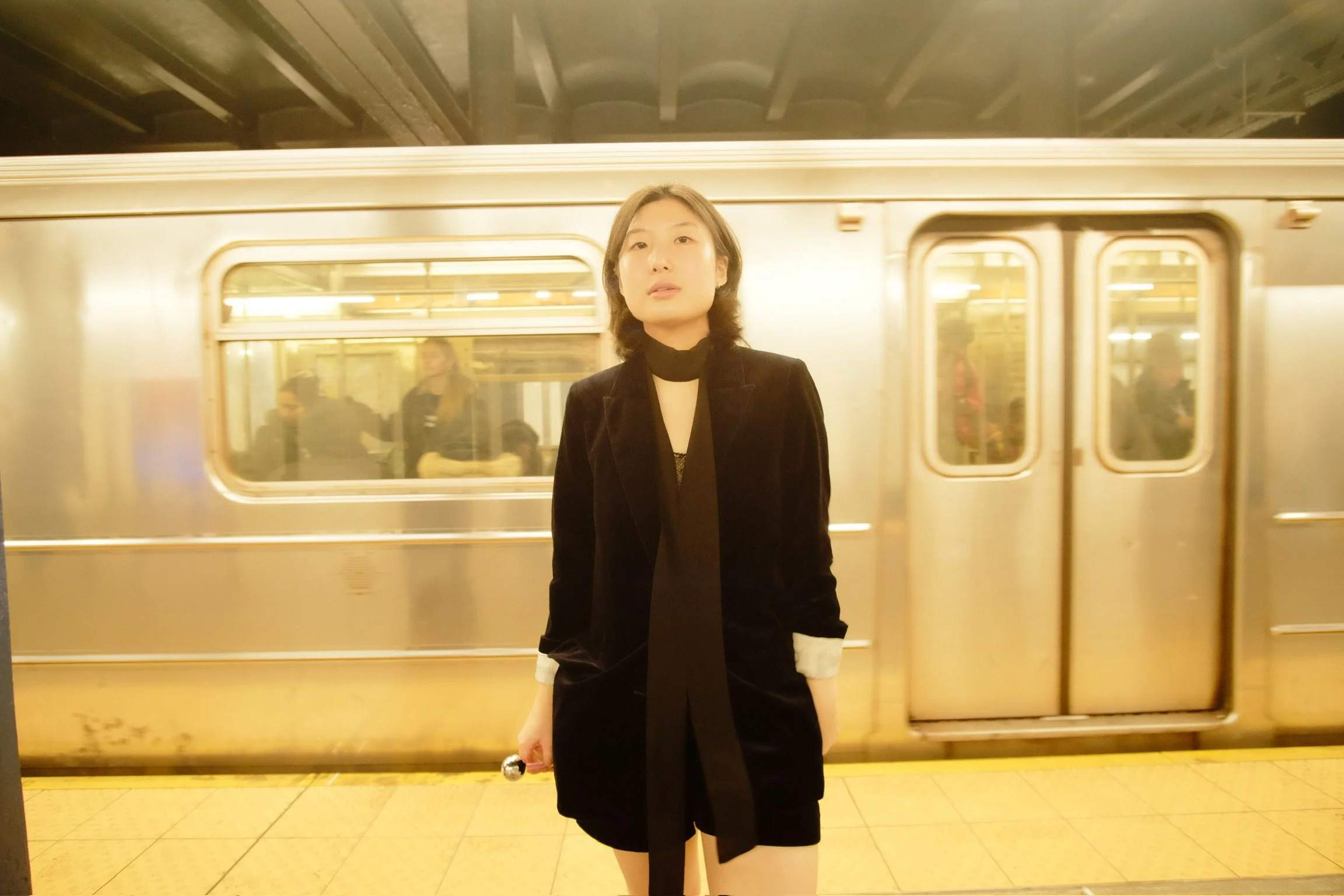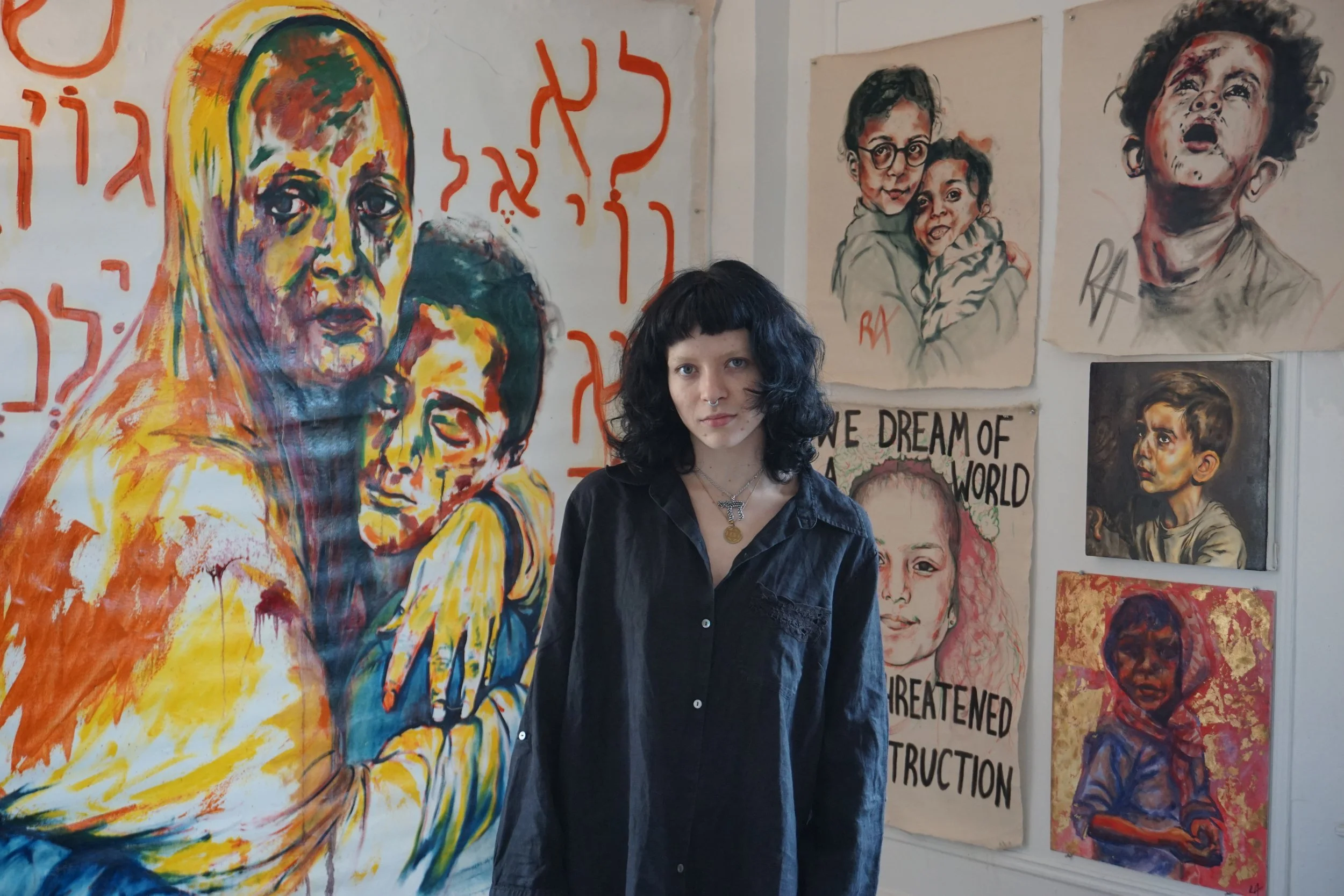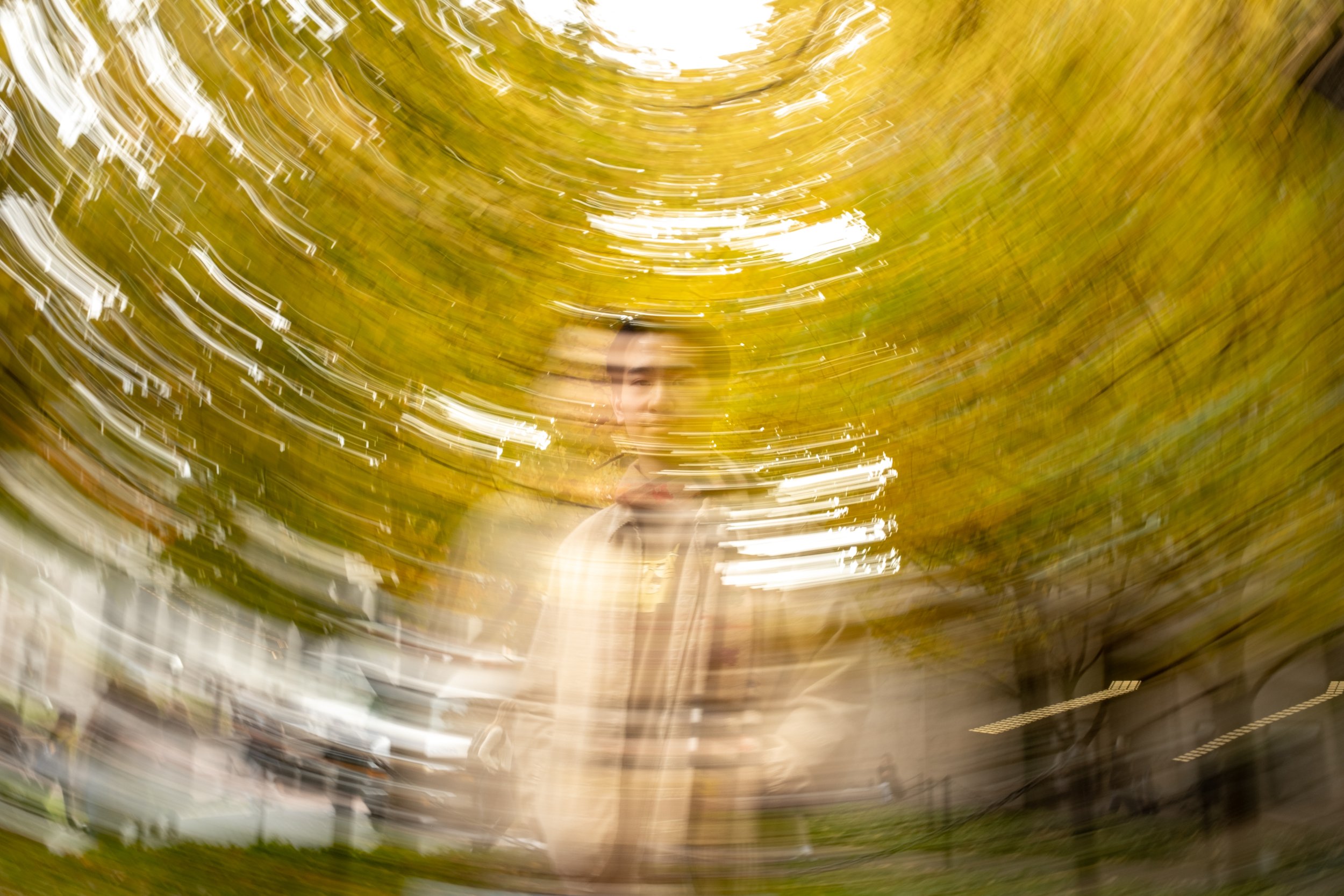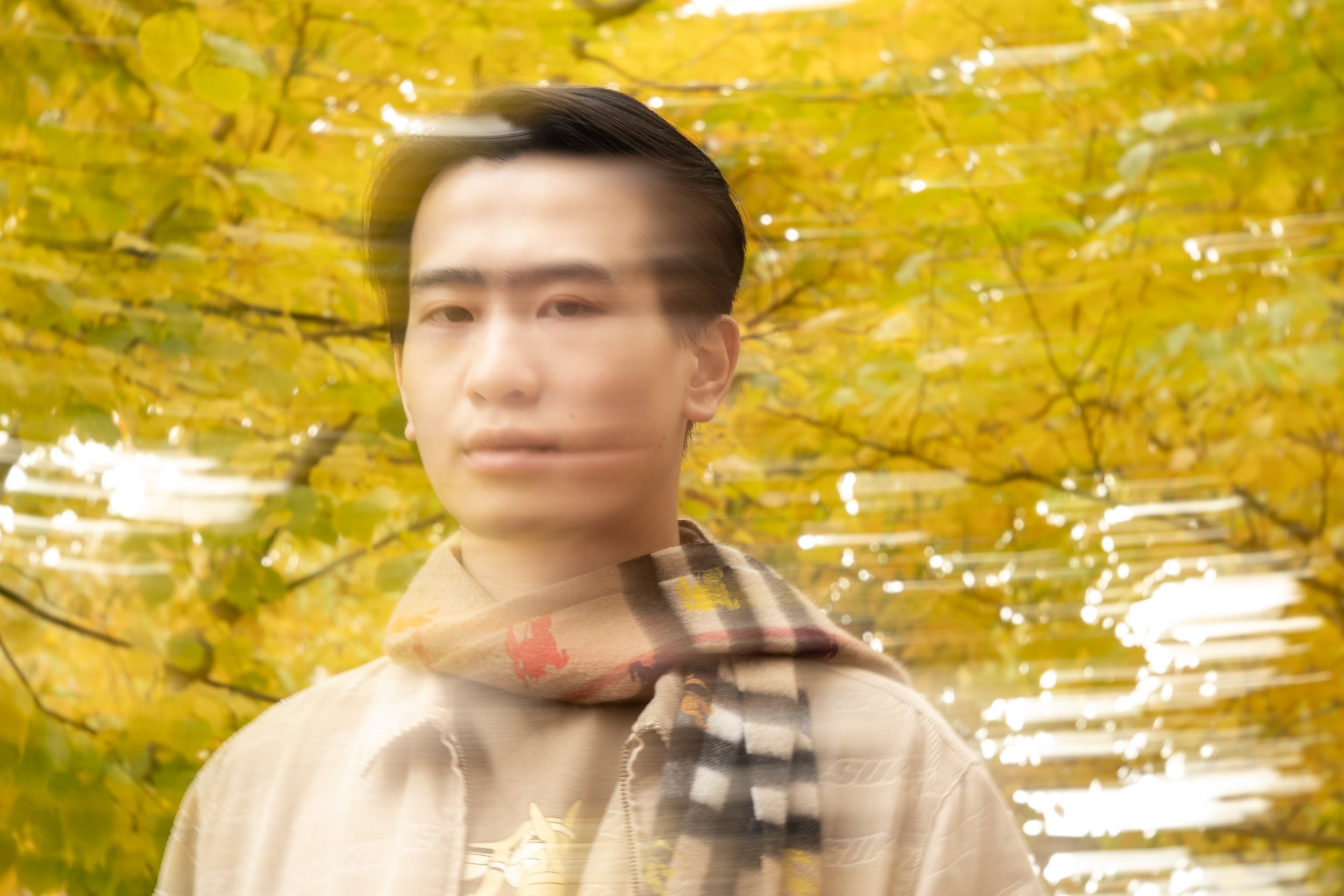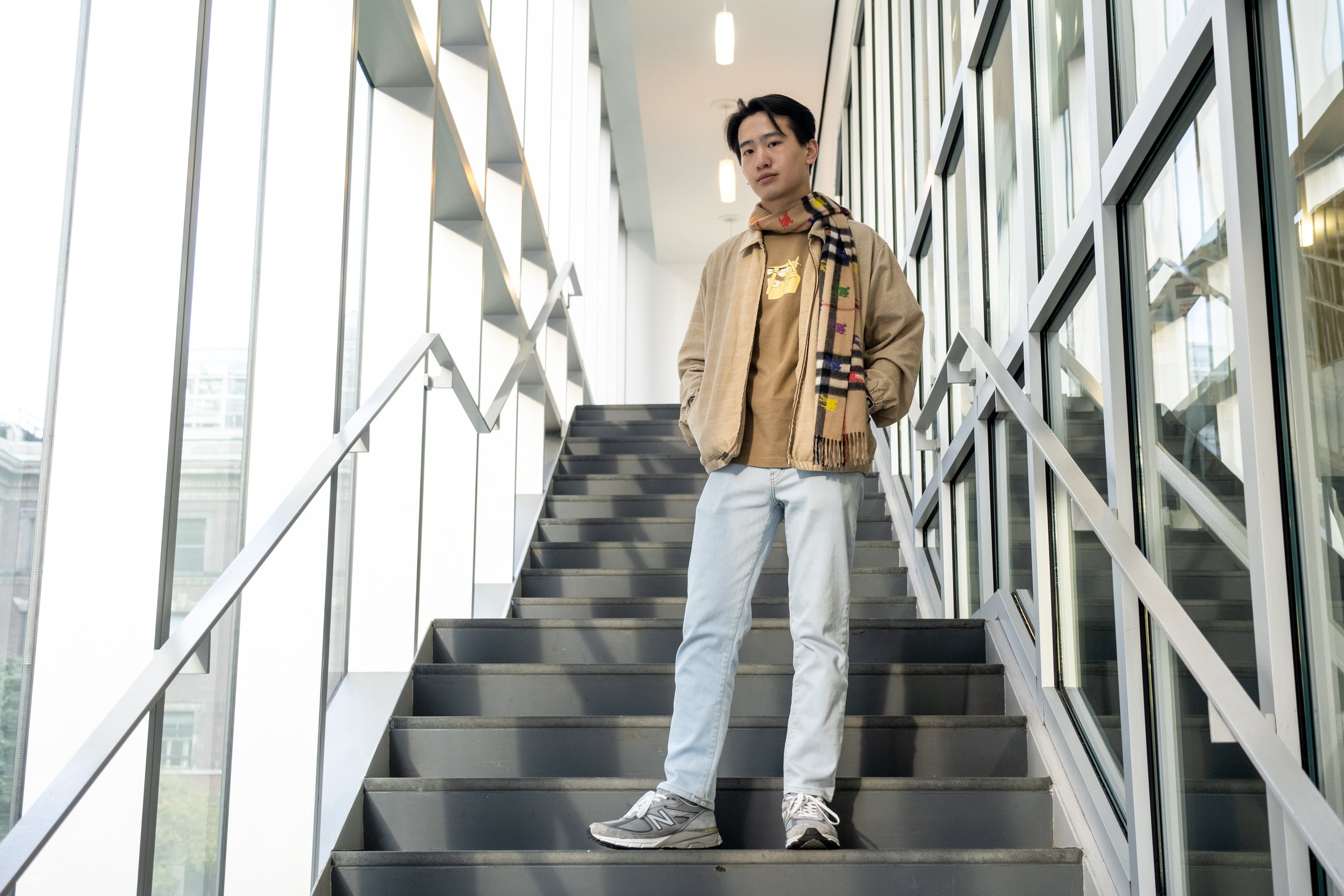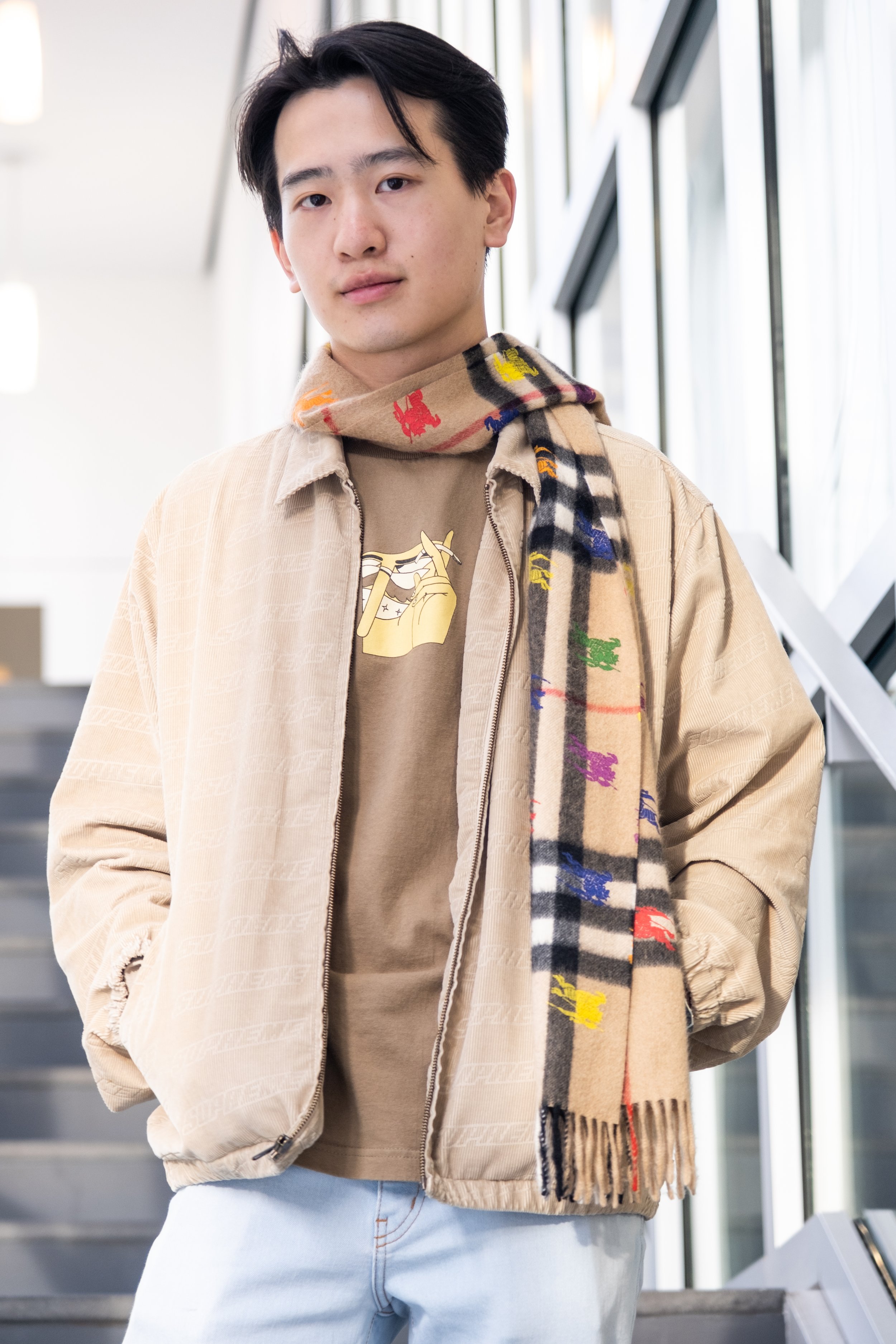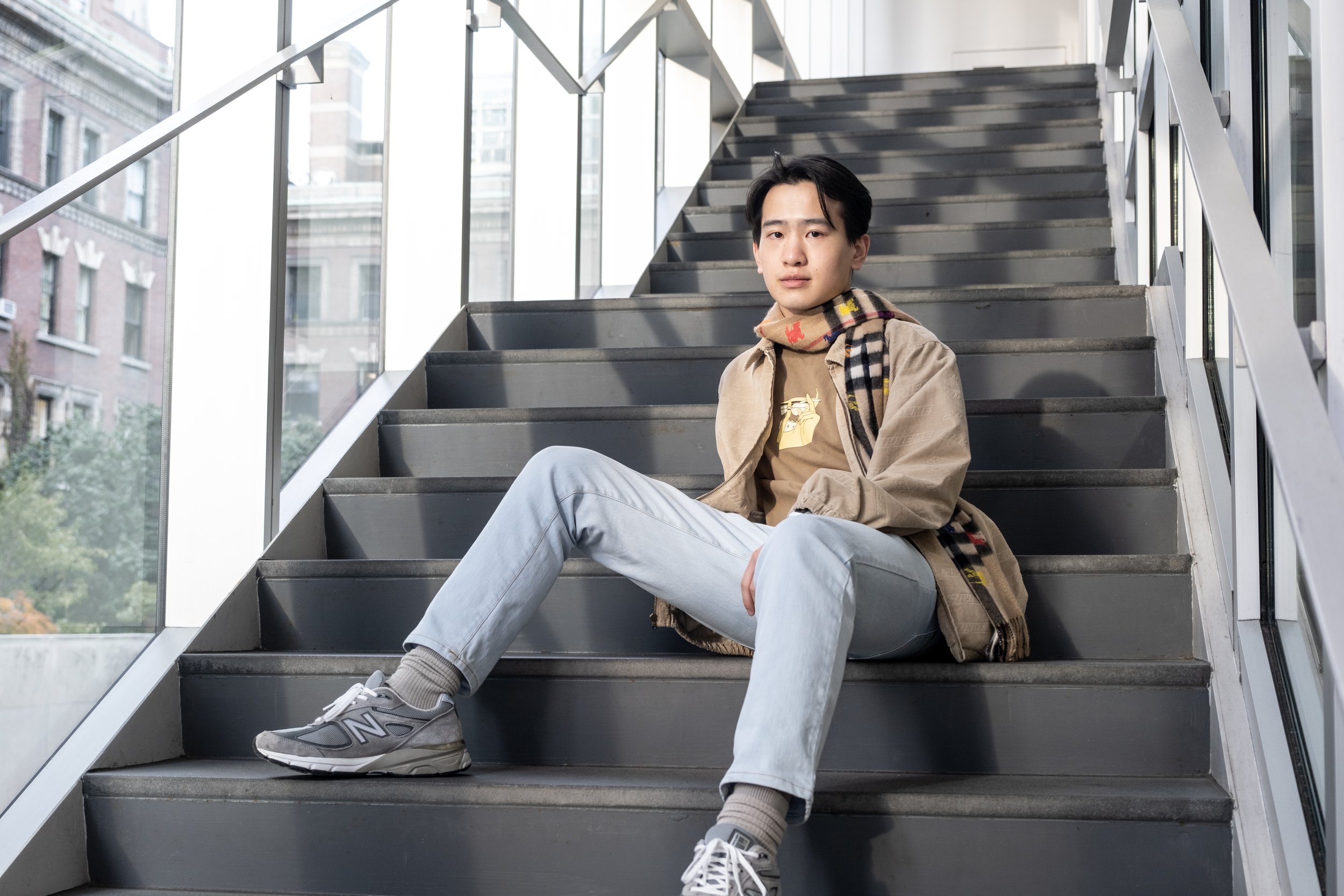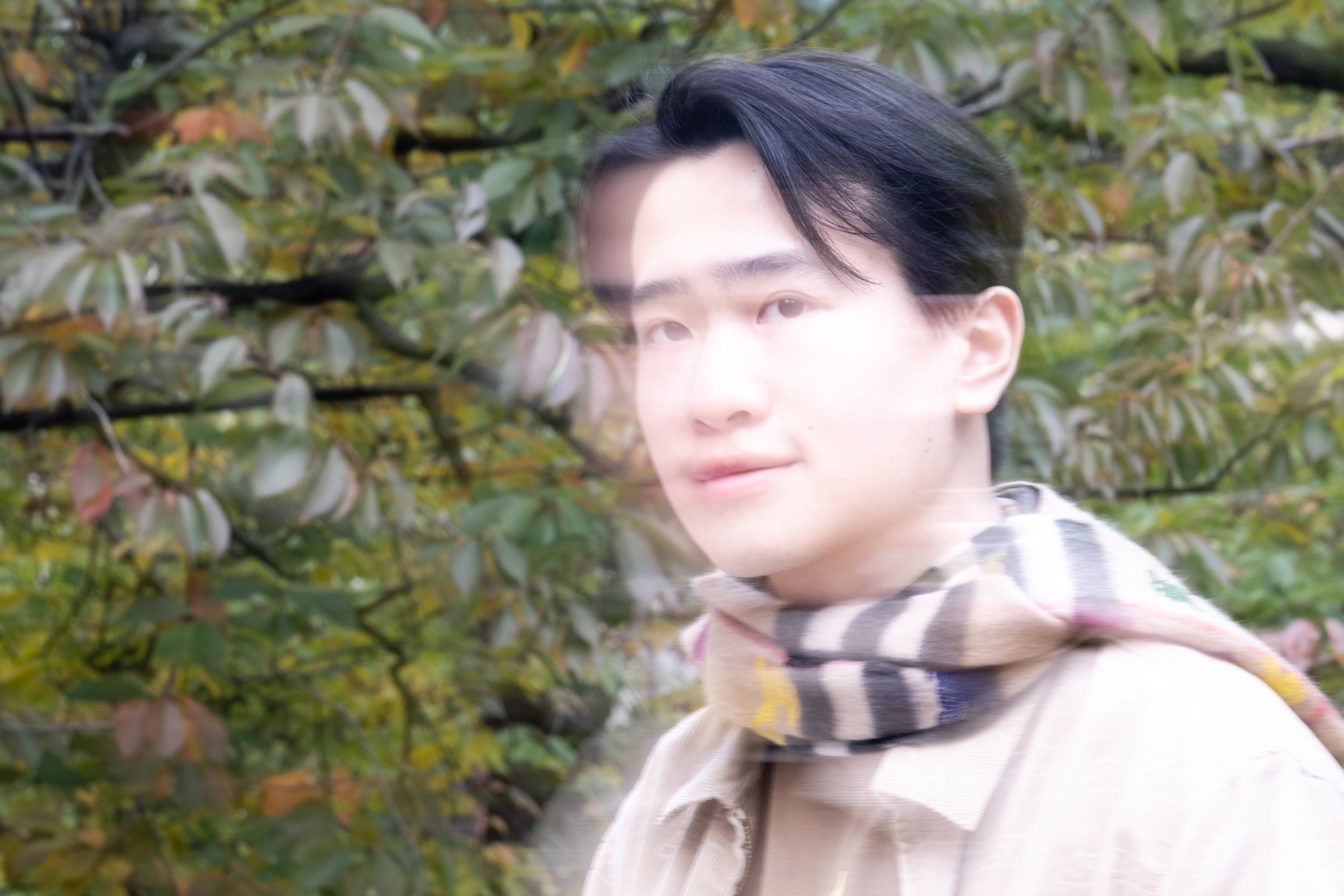Feature by Aditi Kapoor
Photos by Caitlin Buckley
Bill Liu is an analog photographer from Australia, and a lover of symmetry. In 2021, he moved to New York City as a student at Columbia and has since taken to embrace the compositions offered by the metropolitan, in contrast with some of his earlier works that feature visceral stills of the Australian landscape.
What got you into film photography?
I began in high school, just as a fun way to remember the final days right before graduation. I would usually bring a disposable camera to most occasions, primarily to take photos of my friends––especially because I knew I'd miss them once we all went in different directions. It felt like a time I’d want to remember. As for the medium of film, there’s something about not being able to see your photographs until you get them developed and scanned that makes the experience more rewarding. There was way more nostalgia that echoed from those film photos than from photos I just haphazardly took on my phone. After that period, I kind of just stuck with it. Having a limited number of shots per roll also meant that I was a lot more careful with what I was capturing. Now I bring my clunky vintage camera everywhere.
Because film is such a precarious medium, have you ever felt more conscious about what you’re trying to capture?
I used to have a digital camera that I used quite often, and the main difference I found was that on film, you can't see the exact photo you're taking. It’s still possible to compose it in the exact way you wanted, but doing it on film is more of an interesting challenge. All of my photos became about capturing the symmetry I would have been able to get with a digital camera. I started capturing sceneries and cool geometric shapes that evoke symmetry, instead of going after specific subjects. That made carrying my camera with me a lot more fun because I wasn't necessarily looking for things to photograph, I just embraced whatever came my way.
While perspective differs from photographer to photographer, what do you think makes for a good perspective that can be visually channeled into a photograph?
I'm sure there's a technical answer for that, but for me, it's mainly about being able to find specific lines and shapes that look good in 35mm. It could be mountain ranges, or simply a flower, but as long as it’s captured in-depth and with every layer complementing the others, it’s a good perspective.
Your photographs are especially evocative because of their colors. Have you ever wondered what photography would be like without color? Would you ever want to capture the world in black and white?
I haven't experimented much with black and white just yet, but it's certainly something I would want to get into. Black and white film accentuates the composition of a photograph a lot more than color film does, I suppose. Eliminating color makes you focus more on the subject of the photo, regardless of whether that is a shadow or something material. While it has its pros, black and white photography still seems restricting to me, especially since all my photos have amounted to these colorful experiences that I’d like to capture with full impetus.
That makes me wonder if being from Australia, especially with the country’s terrain, has had an impact on how you perceive color?
Absolutely. It makes me realize that that's precisely why I've been keeping to color photography––the landscapes and the scenery of Australia are so vibrant that one would be remiss not to capture it in color. The flora and fauna in Australia have so many different contrasting colors and shades––for instance, the arid and dry landscape complements the green plants. Plus, Australia's always got really beautiful weather. The blue skies always create a great contrast between the landscape, especially if you’re around beaches.
Despite having transitioned to New York fairly recently, do you think the city’s atmosphere can be fully be captured in black and white?
Yeah, I think so. I mean, whenever I think about black and white, my brain immediately points to noir films set in rainy Paris or rainy New York. Similarly, old black and white silent era films feel so reminiscent of what I see in New York now.
Being a photographer myself, I’m really fascinated by how photographers perceive the world. Do you think you look at the world as a spectator first and then a photographer, or vice versa, if at all?
I can't say I've ever thought about it in that way before. I suppose the vast majority of my photos are taken when I'm traveling, whether on a road trip or camping with my friends in Australia. I guess I go to those locations first as a spectator, just to travel, but I always keep in mind my camera. I don't typically intend to take photos when I go out, but I like having the option to. I never go to a place just to take photos; that way, it’s especially serendipitous when I come across a scene that’s worth capturing.
Do you ever find photographs deficient in that it captures a mere split of a second? Do you find yourself craving more from a medium that is perhaps less still?
I certainly think photography and videography both have their own distinct positions in the world. While I may not be a professional photographer, I believe really impressive artists are individuals who are able to work within the limitations of their medium, all the while communicating their message. From that lens, even if photography is an instant in time rather than a moment, it is a limitation that photographers have to contend with, and the good ones are able to grasp that.
Having begun in high school, I wonder if you think photography has changed you over the course of time? Have your photographs changed with it?
I think so. In the beginning, I would take my cameras mainly on nights-out to photograph my friends, but over time it became more about travel and landscapes. It became more focused on the aesthetics of the photo, rather than the subject. Gradually, I have moved more and more away from people to symmetry found in nature. In terms of the way it has changed me, film itself has made me a lot more careful about composition. I'd like to think I've become more sensitive to aesthetics. Now, a lot more goes into evaluating a scene and finding new ways to approach the same subject.
Nostalgia seems to be a very big facet of your photography. Do you think photographs generally possess an emotional charge? Do you think that charge lapses over time, or are photographs immortal?
This relates back to when we talked about the medium of the photograph being limiting. Photographs are unlike writing but they’re still “worth a thousand words,” right? If historic writing is still relevant today, photographs should be warranted the same immortal status. I think a lot of the emotional charge that a photograph envelops comes from what it captures and how it makes you feel, regardless of how distant you may be to its subject. If a photograph fulfills those conditions for an individual, its charge is likely to remain intact.
I feel as though one of the biggest dilemmas a photographer faces is feeling conscious before pressing the shutter. Have you ever felt that way?
I certainly feel a level of self-consciousness whenever I whip out a camera in some places, especially when there are a lot of people around. However, both my parents are Chinese; they’ve spent a lifetime taking photos on their digital cameras. As a child, I remember being grouped for family photographs behind every scenery, time and time again. I used to get embarrassed by my dad because he wanted to take so many pictures. No matter what kind of gathering it was, as long as there was a group of people, he’d always want a group photo. Plus, he’d additionally make every combination of a photo possible. Him and her...and now this guy and this guy… it was so funny. Having grown up with that happening in the foreground, I have grown to embrace my presence in a specific place, if only to rid myself of the consciousness that prevents me from capturing it permanently.
It’s so fascinating how generations before us perceived photography so differently. Do you think your parents had different intentions towards photography, as compared to you?
My parents certainly didn't do photography for the art of it. They wanted to capture people and share memories. That's certainly how I first got into it. In year 11, I made a conscious effort to take a one-second long video every day of the year and made it into a collage at the end, which was really cool. I wanted to do something similar the year after, and it just so happened to be through photography. Regardless of the generation, photography is rooted in preservation— of people, places, and the photographer’s reality and its subsequent experience.
Is there an artist whose work you look up to, someone who has inspired the way you photograph?
Ansel Adams. His landscape photography looks like it belongs in some epic fantasy like Lord of the Rings or something.
Where else can we find your work?
My Instagram is @license_to_chill.
